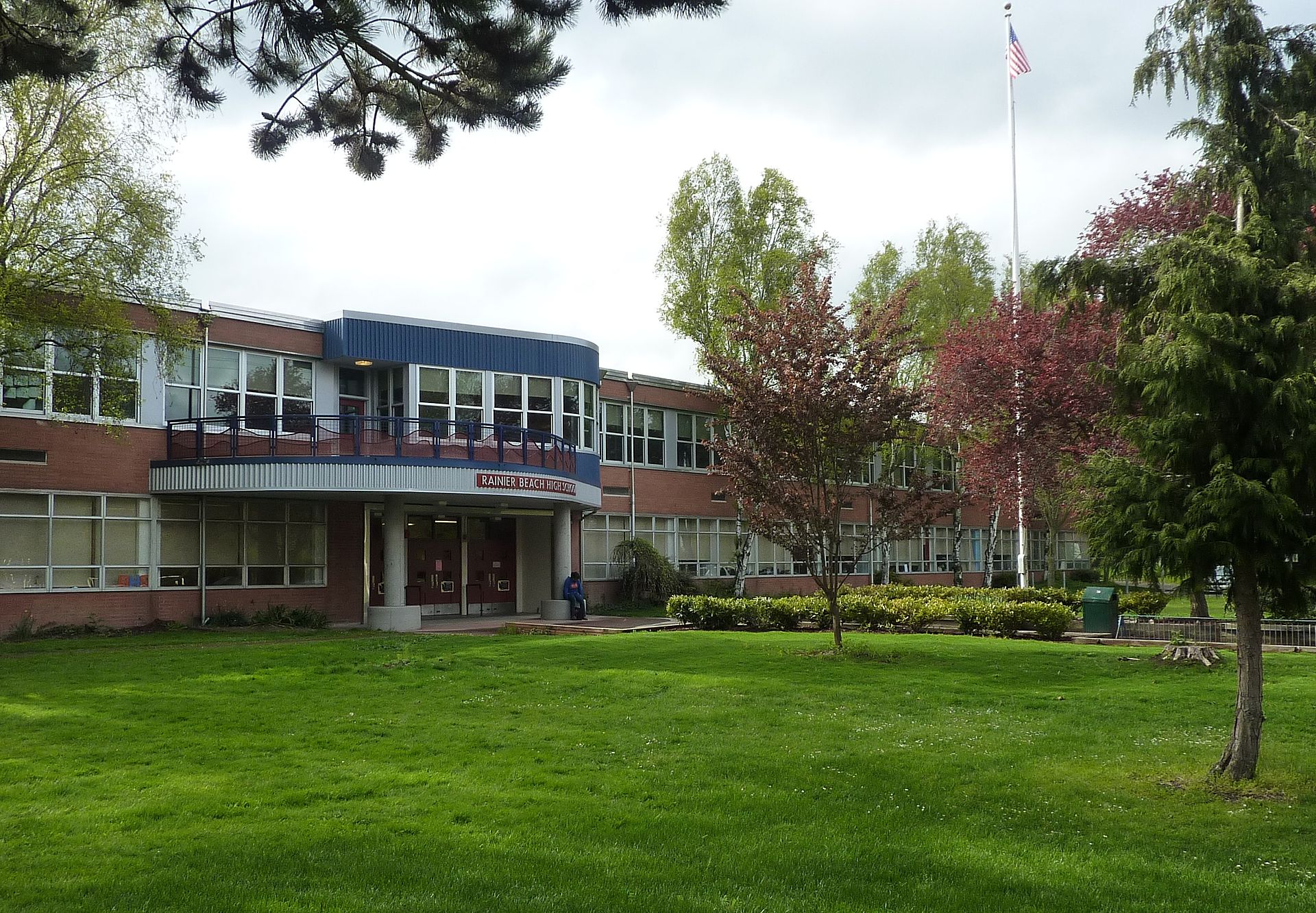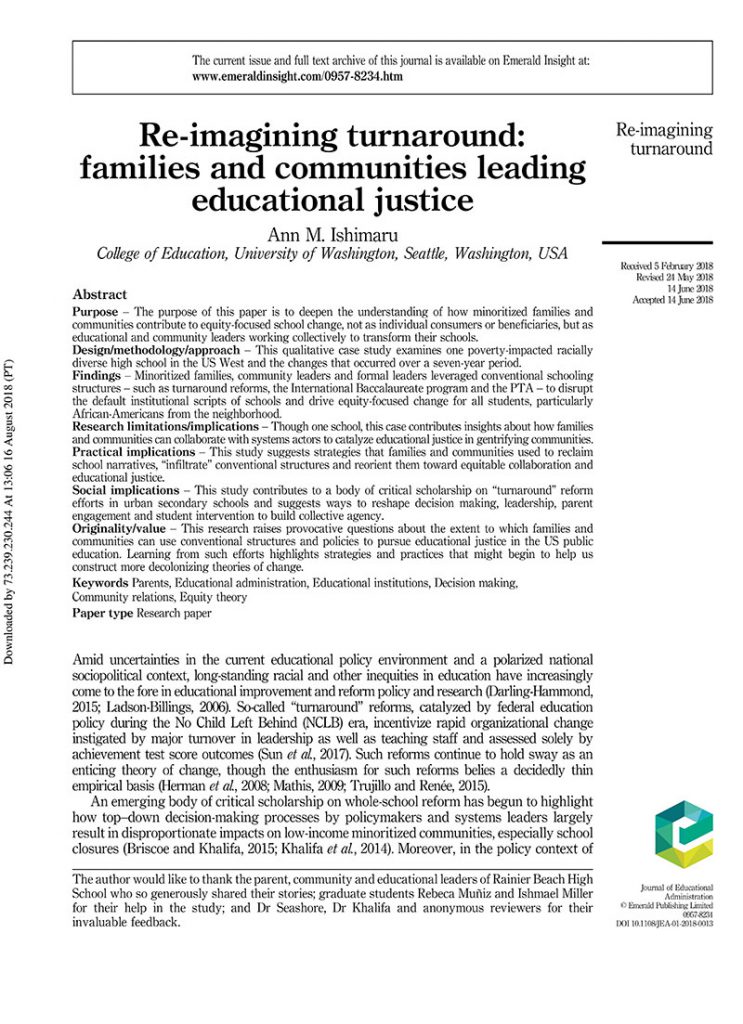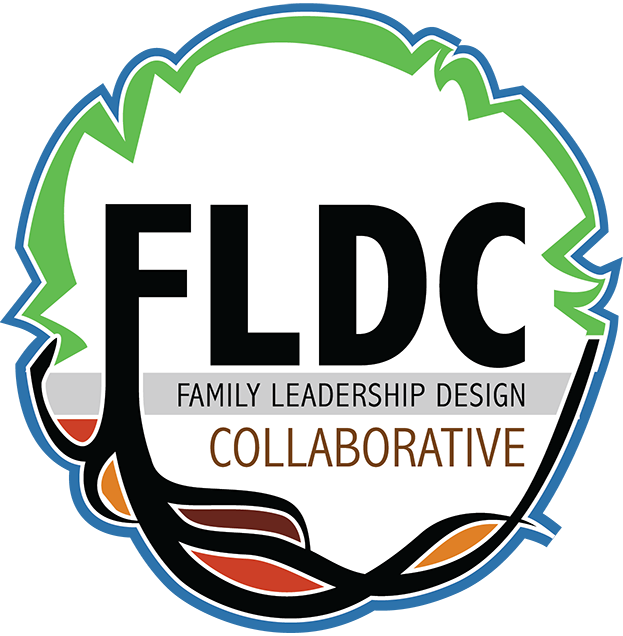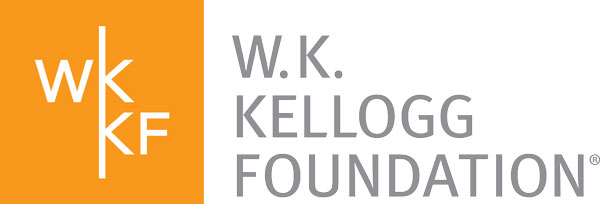We are thrilled to share this publication from FLDC’s Ann Ishimaru on families and communities leading towards educational justice, published in the Journal of Educational Administration (JEA) in a special issue edited by Karen Seashore Louis and Muhammad Khalifa at the University of Minnesota.
The purpose of this paper is to deepen the understanding of how minoritized families and communities contribute to equity-focused school change, not as individual consumers or beneficiaries, but as educational and community leaders working collectively to transform their schools. This paper examines one poverty-impacted racially diverse high school in the US West, Rainier Beach High School, and the changes that occurred over a seven-year period. Rainier Beach High School is a 2016 School of Opportunity recipient.
This study suggests strategies that families and communities used to reclaim school narratives, “infiltrate” conventional structures and reorient them toward equitable collaboration and educational justice. Learning from such efforts highlights strategies and practices that might begin to help us construct more decolonizing theories of change.
The special issue in JEA brings multiple intersecting research perspectives to bear on knowledge that affects the success of secondary schools, particularly those that serve larger numbers of less-advantaged students. Indeed, research on improving upper secondary school in the U.S. and other countries has lagged behind research on elementary and middle-years schools, and even research on higher education. The purpose of this collection of papers is not to provide “final answers” to the question of how best to serve older adolescents, but to present perspectives that go beyond the input-output models of school effectiveness that have dominated empirical research in most countries.
The perspectives presented in this special issue are an outgrowth of the Urban Secondary Schools Conference, which was held in May 2017, at the University of Minnesota. The papers selected for this special issue broadly answer different parts to a single line of inquiry: what are the social contexts within and out of schools that affect achievement of urban secondary school students. These papers are situated in the larger context of that moves school leadership away from a singular focus on improving instruction in order to improve tested student achievement to a broader perspective that recognizes the role of leaders in helping to shape other forces within and outside schools that affect student development and learning.
Top image by Architectsea – Own work, CC BY-SA 3.0, https://commons.wikimedia.org/w/index.php?curid=15108144




